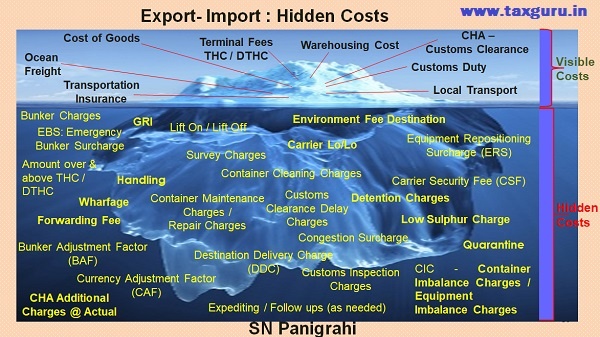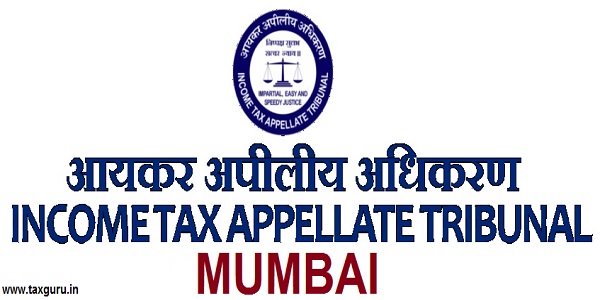Terminal Handling Charge (THC) is currently levied by the port terminals on the shipping lines for services such as unloading cargo containers from the ship and carting them to the storage yard in case of imports and vice versa for exports.
THC is charged by both the load port and discharge port and that is charged by the port for loading and discharging the cargo from the ship. These Costs are borne by the shipping lines at the port of shipment or destination and in turn the shipping line or their agent, will bill these charges to the shipper / consignee. The shipping lines maintain Pre-Deposit (PD) accounts under the existing arrangement with terminals and setoff against actuals.
For long years the trade (importers / exporters) have been accusing the lines of recovering THC charges much higher than what the lines pay to the terminals to clear the containers. The Shipping lines are usually making huge profit margins on these accounts. The Shipping lines usually maintain autocratically high gravity and restrains to release of cargo in case of Imports or release of Bill of Ladding in case of Exports unless all the dues are paid to them.
In a Major move towards ‘Ease of Doing Business’ and to bring in transparency, now the Union Government has allowed Direct Port Delivery (DPD) clients and Authorised Economic Operators (AEO) to pay terminal handling charges (THC) directly to the port terminals instead of paying through Shipping Lines. The move is expected to end years of tussle between shipping lines and importers / exporters over the issue of overcharging.
DPD CELL, JAWAHARLAL NEHRU CUSTOM HOUSE, issued a PUBLIC NOTICE NO. 11/2020 on 17.01.2020 to affect this facility.
Therefore, all such eligible importers who have already opened P.D. Account with the Terminal Operators may pay terminal handling charges directly to the respective Terminals. The eligible importers who do not have P.D. Accounts may open P.D. Accounts with the concerned Ports/Terminals and pay terminal handling charges directly to the concerned Ports/Terminals. Ports/Terminals shall raise invoices for THC directly to the eligible and willing importers.
The direct payment of THC to the terminals will save costs manifold as the shipping lines are charging them two to three times more as handling charges compared to what the terminals actually charge. So, the impact of this decision will be very major as it will save a minimum of ₹5,000 – ₹10,000 per container.
In a first move the Direct Port Delivery DPD and AEO clients numbering about 2,000, will be allowed this facility for Imports only which is a manageable number for the terminals to handle. After this calibrated approach, if this proves success, then the facility is expected to be extended to all importers.
The department is already planning to extend the direct THC payment facility to direct port entry for export customers as well and it will be happening shortly. This will greatly reduce the cost for exporters and they will be more competitive in the international market.
A few months back in a similar way to curtail over charging by shipping lines on account of payment of Freight & Freight related Charges for Exports a Trade Notice No 1/2019-20; November 18, 2019 was issued prescribing Standard Operating Procedure (SOP) for payment of Freight & Freight related Charges for Exports
The exchange rate quoted by the Shipping Line or their agent or Trade intermediaries for the payment, towards freight & freight related charges, in their invoice, if the exporter chooses to pay in INR, is much higher (200-300 paise more) than the prevailing market exchange rate;
These series of measures are being made to minimize cost Logistics for Trade – Export & Import. Still some more regulatory measures are required stop general and well established deep-rooted corrupt practices of cheating by most of unscrupulous shipping lines & their agents for making un due “profiteering” at the expense of Exporters. As a result of these extra expenses our exports are not becoming competitive in the international arena.
In Export and Import business there are many Hidden Costs involved. These Hidden Costs can completely wipe out any profit, if you are not aware!
Vast majority of shipping companies are unscrupulous in their approach to transparent quotes. This can overly complicate the process of trading goods and add an unnecessary complexity to sea freight. The Shipping Lines collects different types of charges in different names, nomenclatures and also from time to time coin new terminologies to confuse the trade and charge excessively. Below shown are some hidden costs which are not very well disclosed prior to shipments.

There are Two Types of Hidden Costs, Exporters & Importers should understand both:
1. Foreseeable Hidden Costs (Known – Unknown Costs): ones that we know beforehand that these costs definitely will be charged and payable at actual, but exact amount is not known at the time of shipment.
2. Post Facto Incidental Charges (Unknown – Unknown Costs): Costs that are payable only when some incidents happen which are not known at the time of shipment but costs incurred by shipping line those are being passed on the Exporters or Importers. (Usually only if the shipment doesn’t go smoothly.)
Exporters and Importers can so easily miss something and end up paying hidden and unforeseen costs when their final invoices arrive.
Make sure you know what hidden costs can arise so you aren’t caught out!
Disclaimer : The views and opinions; thoughts and assumptions; analysis and conclusions expressed in this article are those of the authors and do not necessarily reflect any legal standing.
Author : SN Panigrahi, GST & Foreign Trade Consultant, Practitioner, International Corporate Trainer & Author. Author is Available for Corporate Trainings & Consultancy and Can be reached @ snpanigrahi1963@gmail.com

























One more aspect which is related to export shipment is regarding recovery of charges on account of damage to containers. Shipping lines have a tendency to extract exorbitant repairing charges from consignee. Once the consignee approaches liner for delivery order or release of container security deposit….he is handed over debit note on account of container damage. If the said container has not left the port area ( port de-stuffing) then how consignee is liable to bear such charge. At the origin port, once the stuffed container is handed over to liner, control over container ceases. Hence, such practices by shipping line should also be highlighted in trade.
I am in the WhatsApp grp of IIMM & one of the oldest life members of IIMM Bangalore
for almostt 35 yrs.
Would like to partner with you for my Company on Freight Forwarding leads & on consultancy services on CHA etc.
Malik Shariff MD GSN Freight Forwarding India Pvt LTD Bangalore